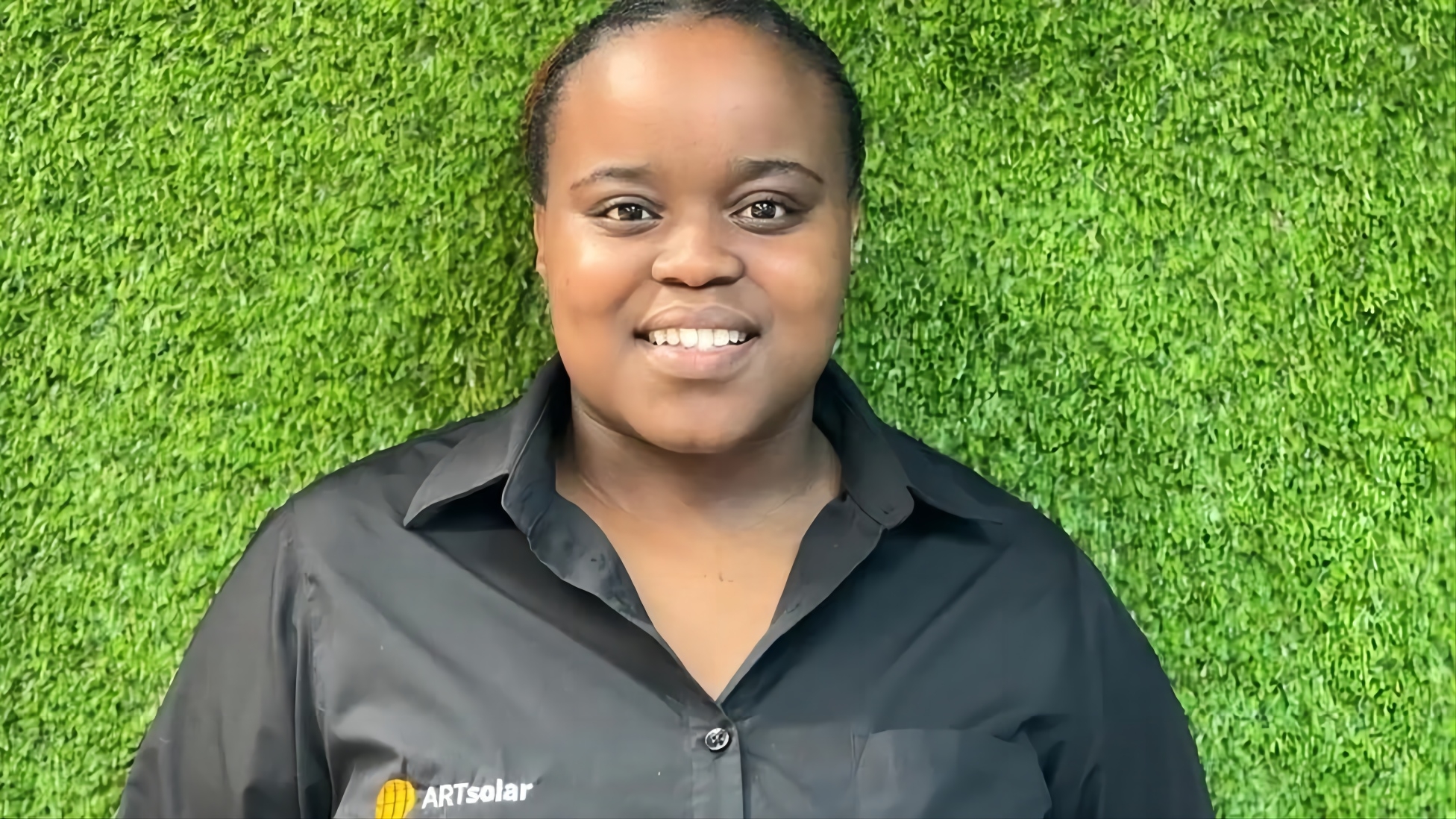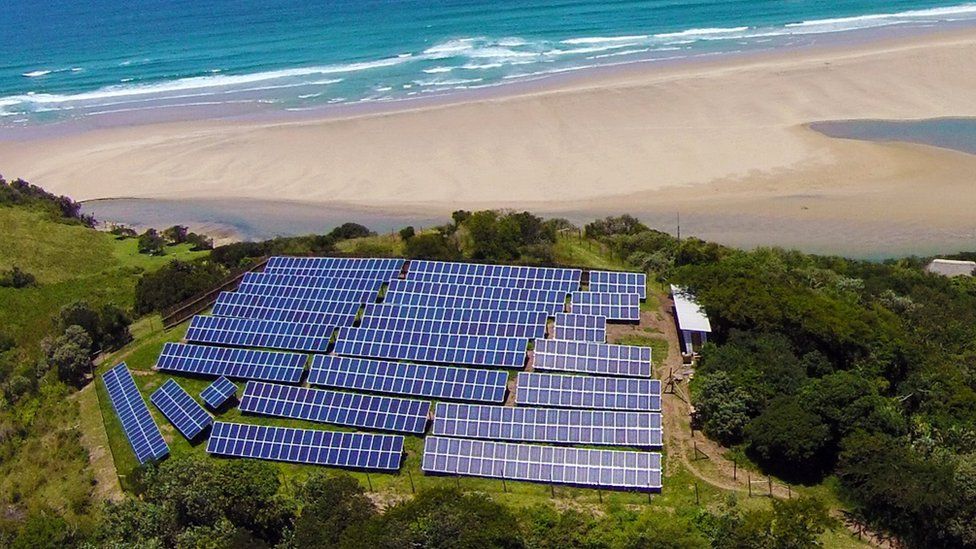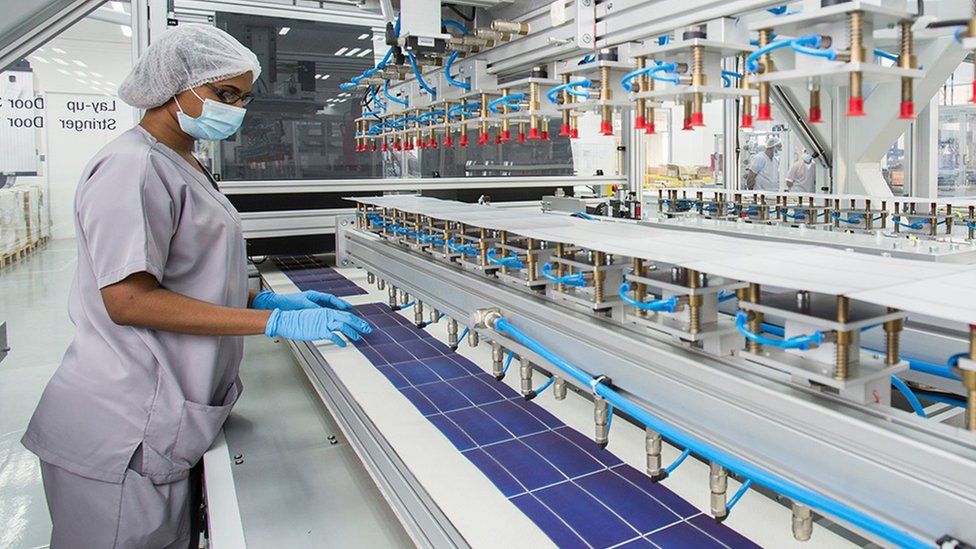
Young engineer Nolwazi Zulu says that when she was a teenager she decided that she would “go out and do something” about the regular power cuts that bedevil her community.
Now 25 years old, Ms Zulu is from rural Kwazulu-Natal on the eastern coast of South Africa.
Like the rest of the country her home province has had to endure frequent blackouts, called “load-shedding”, since 2008.
This has been caused by South Africa’s aging, state-owned power grid, and its mainly coal-fuelled power stations, struggling to keep up with demand.
To try to help solve the problem, and boost its environmental credentials, the South African government is now continuing with efforts to boost the amount of solar-power generation in the country. To do this it is encouraging firms in the sector to tender for contracts.

It currently wants to secure an additional 1,000 megawatts from solar power, enough to provide electricity for approximately one million homes in the country. This is in addition to a desire to boost onshore wind power generation by 1,600 megawatts.
Currently only 11% of South Africa’s power comes from renewables, and mostly wind. Just 0.9% so far comes from solar, in a country that gets an average eight to 10 hours of sun every day, compared with the UK’s four.
One firm that has won one of the solar bids is Art Solar, the only South African-owned solar panel manufacturer. The word Art stands for “African Renewable Technology”.
It is at this company that Ms Zulu works in the design team as she continues to study for a diploma in electrical power engineering at the Durban University of Technology.
In addition to helping the national power grid, she says that solar panels can bring power to the many rural homes that aren’t connected to the mains.
“I want to open an Art Solar branch in Ulundi [where she grew up], and bring solar to my village,” says Ms Zulu. “It is cheaper and better than how we are living through load-shedding, and will change so many lives.”
Durban-based Art Solar started 12 years ago, building solar panels under licence from German firm Bosch. It now manufacturers panels in partnership with fellow German company Talesun for both the South African and international markets.
General manager Viren Gosai says that the government’s solar push has given the company the confidence to open a new facility that is capable of producing 650,000 panels per year.
It also supplies private homes and businesses, despite its panels being more expensive than lower-quality imports that don’t face any import tariffs.
“Covid-19 and lockdowns were bad in many ways,” says Mr Gosai. “But the one positive I noticed is that it made people patriotic.
“People want to buy local, rely on the resources at home, and are loyal.”